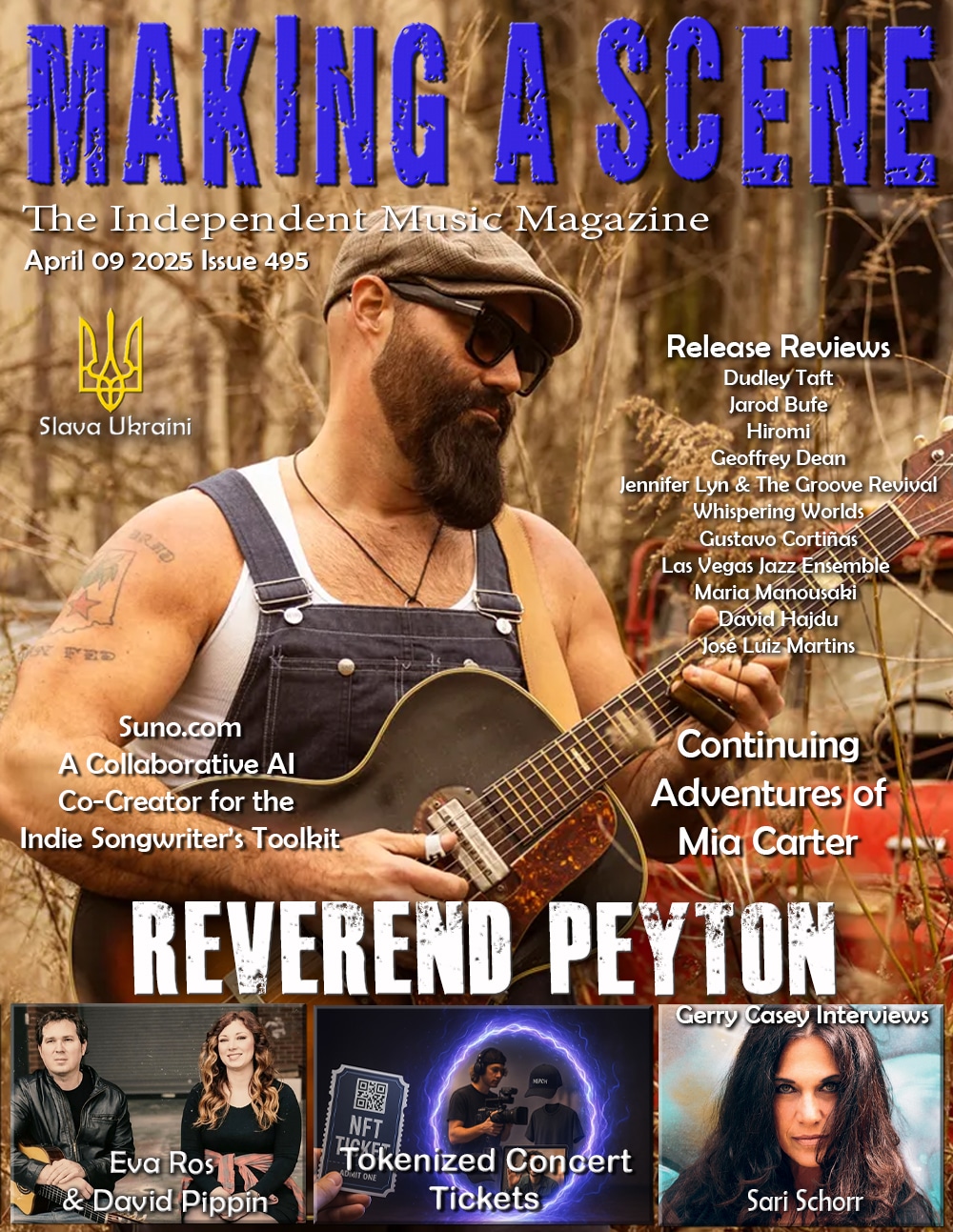The Dark Side of Music Streaming Services
Making a Scene Presents – The Dark Side of Music Streaming Services
In the wake of a groundbreaking lawsuit filed by electronic music producer Marc Mysterio against Amazon Music and DistroKid, serious questions are emerging about the trustworthiness and ethics of major streaming platforms. Mysterio claims he is owed royalties for over 80 million streams and accuses Amazon of shadow banning his music—effectively making his songs invisible to listeners and tanking his earnings and discoverability.
While some in the industry may dismiss these allegations as isolated or technical in nature, Mysterio’s case taps into a growing undercurrent of frustration shared by independent musicians worldwide. It speaks to a larger, systemic issue that few artists have the power to challenge: streaming platforms operate with total control over how music is surfaced, monetized, and reported with no transparancey. And when that control is misused, it’s the artists and the culture that suffer. We as independent artists have to trust these platforms that they are working in our best interests when past history shows us that they should not be given that trust.
Underreporting Streams: A Silent Form of Royalty Theft
One of the central accusations in Mysterio’s lawsuit is that Amazon Music underreported the number of streams for his music, resulting in massive unpaid royalties. While 80 million unpaid streams may sound extreme, many artists suspect that underreporting whether due to negligence, flawed accounting systems, or intentional obfuscation, is more common than the industry admits.
Streaming services provide artists with data dashboards and vague royalty breakdowns, but artists have no direct access to the backend systems that track play counts. This creates a fundamental power imbalance: the platforms control the numbers, and artists are expected to accept them at face value. There is rarely an independent audit process available to verify streaming figures, especially for independent artists who aren’t backed by major labels.
Without transparency, there’s no way to confirm whether the reported royalties reflect the true value generated. In Mysterio’s case, the alleged discrepancy could total hundreds of thousands of dollars in lost income that should have helped fund future projects, tours, and collaborations. The bottom line is we as indie artists have absolutly no way to verify that we are being treated fairly by these streaming platforms. With spotify’s policy of not paying any tracks that are under 1,000 streams a year, what is stopping them from underreporting these streams in order to not pay indie artists and not pay for the accounting that would be required to pay them?
This opacity doesn’t just hurt artists financially it erodes trust in the entire ecosystem. If musicians can’t verify the basic numbers that determine their livelihood, how can they plan for a sustainable future?
Shadow Banning: The Invisible Censorship of the Streaming Era
Perhaps even more insidious than underreported streams is the practice of shadow banning, a digital suppression tactic that streaming services and algorithms are increasingly accused of using to limit an artist’s reach without any clear notification or explanation.
Marc Mysterio alleges that beginning in September 2024, his music became harder to find on Amazon Music. Tracks would mysteriously stop loading or encounter technical errors, while his name and songs appeared less frequently in search results and playlist placements. To the casual listener, this might look like a technical glitch. But to the artist, it’s career sabotage.
Shadow banning is particularly dangerous because it is invisible and unacknowledged. Unlike a ban or takedown, which at least provides notice and rationale, shadow banning occurs silently. The algorithm simply stops recommending your music. Your search ranking drops. Your songs are removed from curated playlists. Your visibility fades—and with it, your revenue and momentum.
For independent musicians, this can be a death sentence. Unlike major-label acts, indies rely on organic discovery and algorithmic promotion to reach new fans. A sudden dip in streams or engagement without explanation leaves artists guessing: Was it a change in the algorithm? A mistake? Or deliberate suppression?
Even more troubling is the lack of recourse. If you’re shadow banned, there’s no official appeal process. There’s no hotline to call or dashboard alert. You may not even know it’s happening until your monthly statements show an inexplicable drop in revenue.
This lack of transparency creates an environment ripe for manipulation. If platforms can shadow ban artists at will, they wield disproportionate power to shape public taste, silence dissenting voices, or prioritize profit-driven partnerships over artistic diversity.
Data Manipulation and Artificial Streaming: Who’s Really Winning?
Beyond the issues of shadow banning and underreported streams lies the murky world of data manipulation and artificial streaming. In recent years, reports have emerged of bot farms and streaming fraud, where fake accounts are used to inflate play counts and generate royalties. A recent case in Denmark even led to a criminal conviction after an individual used bots to collect streaming royalties fraudulently.
Streaming services claim to actively combat this kind of fraud. But ironically, the same opaque systems that allow artificial streams to flourish also protect platforms from scrutiny when artists accuse them of foul play. There’s little accountability and when fraud detection systems fail, it’s often the artists who pay the price.
Furthermore, big-name artists and companies have publicly accused each other of manipulating data. In late 2024, Drake’s camp accused Universal Music Group and Spotify of using bots and “payola-style schemes” to artificially boost Kendrick Lamar’s chart performance. Whether or not those claims are true, they signal a deeper mistrust in how data is used to determine visibility and success.
When numbers are this easily gamed, when charts can be rigged and payouts suppressed, it’s clear: the current system is broken.
Decentralization: A Better Path Forward for Artists
The growing disillusionment with centralized streaming services has fueled interest in a more transparent, equitable alternative: a decentralized music industry built on blockchain technology.
In a decentralized system, artists regain control over their data, their royalties, and their relationship with fans. Here’s how it works:
-
Transparent Smart Contracts: Every stream triggers an automated payment recorded on a public blockchain. Artists can see in real-time how much they’re owed and when they’ll be paid. No middlemen. No hidden deductions.
-
Immutable Ledgers: Unlike the secretive systems of Spotify or Amazon Music, blockchain-based platforms like Audius, Emanate, and Catalog operate on public ledgers. Artists and fans alike can verify the legitimacy of stream counts and revenue splits.
-
Resistance to Shadow Banning: Decentralized platforms can’t quietly suppress content without leaving a trace. Because the rules governing content discovery and payouts are written into open-source protocols, manipulation becomes far more difficult—if not impossible.
-
Direct-to-Fan Models: Artists can mint NFTs, offer tokenized ownership, or build fan-powered DAOs that reward listeners for participation. This creates new income streams and reduces dependence on gatekeeping algorithms.
-
Community Governance: In a decentralized ecosystem, artists and fans can collectively vote on how the platform evolves. This democratic model ensures that no single entity can unilaterally control who gets heard and who gets paid.
Conclusion: A Call for Transparency and Artist Empowerment
Marc Mysterio’s legal battle is not just about one artist’s unpaid royalties—it’s a wake-up call for the entire music industry. As streaming becomes the dominant mode of music consumption, the need for transparency, fairness, and accountability is more urgent than ever.
Shadow banning, underreporting, and data manipulation are symptoms of a broken system where power is concentrated in the hands of a few opaque platforms. But there is a way out. Decentralized music platforms and Decentralized social media platforms offer a promising path forward one where artists have control, fans have agency, and the entire system operates in the open.
The future of music doesn’t have to be controlled by algorithms in black boxes. With the rise of Web3 and blockchain-powered tools, we have the opportunity to build a fairer, more transparent industry—one that finally puts artists first.
Buy Us a Cup of Coffee!
Join the movement in supporting Making a Scene, the premier independent resource for both emerging musicians and the dedicated fans who champion them.
We showcase this vibrant community that celebrates the raw talent and creative spirit driving the music industry forward. From insightful articles and in-depth interviews to exclusive content and insider tips, Making a Scene empowers artists to thrive and fans to discover their next favorite sound.
Together, let’s amplify the voices of independent musicians and forge unforgettable connections through the power of music
Make a one-time donation
Make a monthly donation
Make a yearly donation
Buy us a cup of Coffee!
Or enter a custom amount
Your contribution is appreciated.
Your contribution is appreciated.
Your contribution is appreciated.
DonateDonate monthlyDonate yearlyYou can donate directly through Paypal!
Subscribe to Our Newsletter
Discover more from Making A Scene!
Subscribe to get the latest posts sent to your email.















































